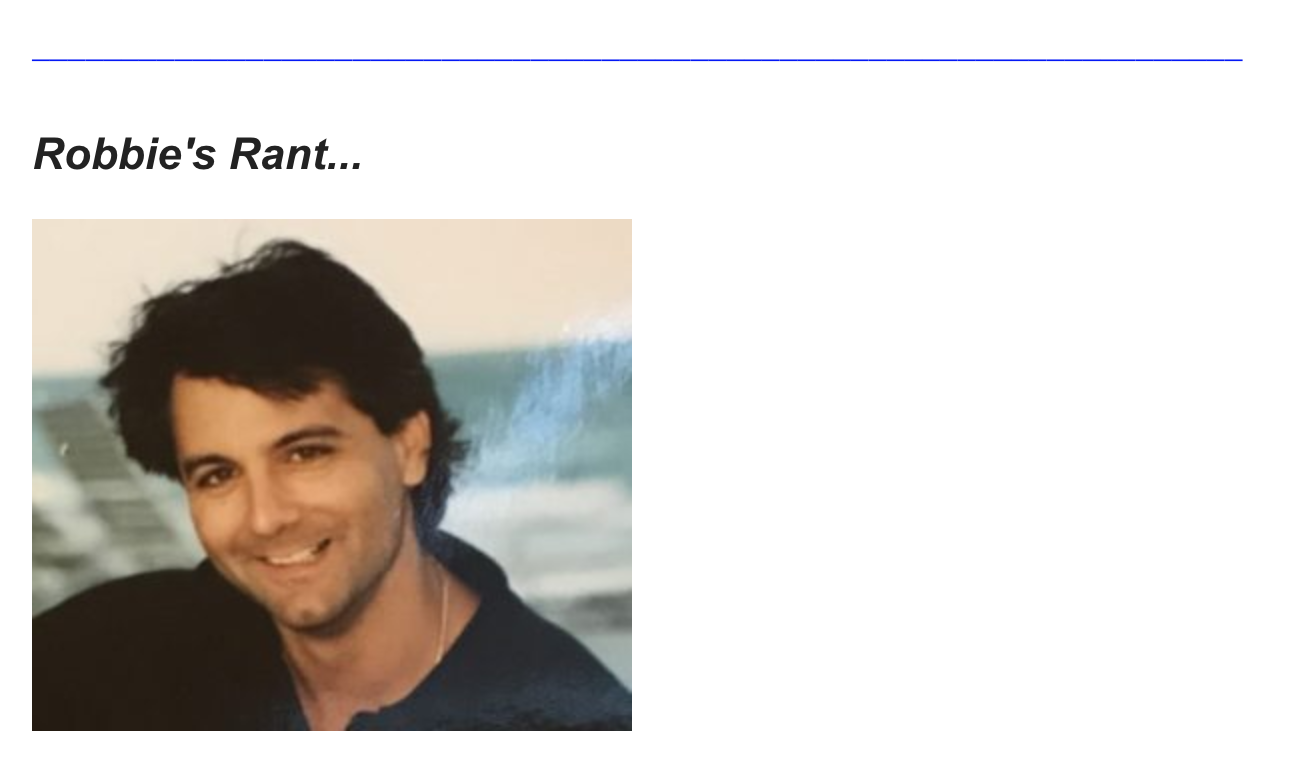The alleged mastermind of a massive health insurance fraud scheme isn’t relying on the products he’s accused of selling to insure himself and his wife.
Charged by the Federal Trade Commission with duping tens of thousands of consumers out of tens of millions of dollars by selling them nearly worthless health insurance plans, Simple Health Plans CEO Steven J. Dorfman has asked a federal judge to unfreeze seized assets — $15,000 a month for living expenses and $200,000 for legal fees.

Among his expenses: monthly premiums for him and his wife, Izabela Freitas, for their very real health insurance coverage, including FloridaBlue’s BlueOptions Platinum 1418.
Consumers who bought products from companies owned or controlled by Dorfman would no doubt like to have such coverage. According to the FTC, they forked over more than $100 million for plans the companies said complied with the Affordable Care Act and covered preexisting conditions; prescription drugs; primary, specialty and emergency care; lab tests; and surgical procedures.
But what they actually got were limited benefit indemnity plans and medical discount memberships “that provide virtually none of the promised benefits” while leaving many unwitting victims deeply in debt.
That’s not the kind of health insurance coverage Dorfman wants to carry as he prepares to fight against the FTC’s efforts to permanently close his operations and redistribute remaining assets to customers.
A payment schedule filed with Dorfman’s request shows he paid $3,664.80 between January and July as the primary insured for a coverage plan identified as compliant with the Affordable Care Act. Also filed with the request was a Florida Blue billing statement seeking payment of $2,332.90 for the BlueOptions Platinum plan purchased under his wife’s name. The bill detailed the amount due as $1,166.45 for the month of December and an identical amount as past due.
“Platinum” plans are the most expensive of the four types of plans offered on the individual health insurance marketplace — after bronze, silver and gold — because they offer the lowest deductibles and out-of-pocket expense limits.
Dorfman, who also said he needs $6,600 a month in rent for his home, requested the asset release in an emergency motion on Monday that asserts his innocence of the FTC’s charges.
The assets have been frozen since the FTC obtained an emergency injunction that temporarily shut down the operation on Oct. 31. Named as defendants in the FTC’s case were Dorfman and Simple Health Plans LLC, plus numerous others portrayed as aliases or affiliates, including Health Benefits Center, Simple Insurance, Simple Auto, Simple Home Plans, Simple Care, Simple Life, Health Center Management LLC, Health Benefits One, Senior Benefits One and Simple Insurance Leads, among others.
The FTC said the companies “gain consumers’ trust by falsely claiming to be affiliated with reputable organizations, such as the Blue Cross Blue Shield Association and AARP, and by falsely claiming to be experts on, and providers of, government-sponsored health insurance policies, such as those offered [under the] Affordable Care Act.”
Dorfman’s motion argues that the FTC has not yet provided evidence that Dorfman’s potential liability exceeds the frozen funds. A hearing on the matter is scheduled Dec. 6 in U.S. District Court in Miami.
The motion accuses the FTC of basing its case on a “flawed argument” that Dorfman and his companies misled consumers. Rather, it was his companies’ “lead generation vendors, not the Defendants, [that] advertised the sale of Affordable Care Act-compliant health plans and plans issued by AARP and Blue Cross Blue Shield Association [and in fact sold such plans],” the motion states.
In obtaining the temporary restraining order that stopped the operation, the FTC also persuaded U.S. District Judge Darrin P. Gayles to appoint a receiver, Michael Goldberg of Akerman LLP, to investigate and catalog the operation’s assets so consumers can be refunded if the FTC prevails in its case.
The assets that were frozen included Dorfman’s personal accounts and resources, the emergency motion states, leaving him “unable to meet his daily living expenses, such as rent, health insurance, food and transportation or pay his attorneys fees and access.”
“Additionally, Mr, Dorfman is not seeking to modify the asset freeze so that he can pay for luxury items,” the motion states.
The FTC’s complaint Oct. 31 accused Dorfman, whom it called “the architect of this scam,” of siphoning “millions of dollars of proceeds from defrauded consumers” for “lavish spending for himself.”
With the money, Dorfman bought more than $1 million in jewelry, luxury vehicles including a Rolls-Royce Wraith and Lamborghini Aventador, rent on a $1.4 million oceanfront condominium and a nearly-$300,000 wedding at The St. Regis Bal Harbour Resort in March, which included $133,000 worth of flowers, the complaint stated.
In a photo feature, the magazine Haute Living described the March 24 wedding as a “low-key gathering of close family and friends.”
“Guests were treated to Dom Parignon all night long, and an exquisite menu of gourmet cuisine. … Every detail of the nuptials was impeccable, making it the consummate event to begin a beautiful marriage.”

There’s a lot of irony out there, this one takes the cake.
I mean here you have a stone cold criminal robbing people blind who were simply trying to buy health insurance only to find out they got nothing in return! This is a very serious criminal activity. You’re playing with people’s medical needs. Some people probably died because they weren’t able to get the entitlements that they thought they had. This is a really sad story. Usually these kinds of cases end with really long prison sentences.
Simply based on the sheer number of victims alone, I could see a guy like this getting 15 to 20 years in prison, easy. He’ll score out to life in prison, based on the prison’s scoring system. A lot of criminals who get involved in white collar fraud really don’t know the repercussions. Unfortunately when they find out, it’s too late.
The only good news is, it puts an end to the criminal activity and hopefully people who are being victimized can now get some kind of restitution. I guess the irony is how he deprived many people of insurance and stole their money now he’s pleading for his insurance. Crazy stuff!
About The Author

- Robert Louis Annenberg Is a 40 year seasoned property owner, manager, investor, builder/developer and business man who is also an author of five published books to date (Amazon.com) and the chief editor of LifeQuestJournal.com. He can be reached at: [email protected] and (201) 289-2500.
Latest entries
 #13 Chumley's Wall of Shame (My Consumer Advocacy)April 24, 2019Family of Elizabeth Holmes’ fiancé worry she has ‘brainwashed’ him: source
#13 Chumley's Wall of Shame (My Consumer Advocacy)April 24, 2019Family of Elizabeth Holmes’ fiancé worry she has ‘brainwashed’ him: source #16 Celebrity Gossip & Celebrity Real EstateMarch 31, 2019Eric Clapton Grew up Thinking his Mother was his Sister
#16 Celebrity Gossip & Celebrity Real EstateMarch 31, 2019Eric Clapton Grew up Thinking his Mother was his Sister #16 Celebrity Gossip & Celebrity Real EstateMarch 18, 2019Mugshot of ‘Mama June’ released after drug arrest
#16 Celebrity Gossip & Celebrity Real EstateMarch 18, 2019Mugshot of ‘Mama June’ released after drug arrest #16 Celebrity Gossip & Celebrity Real EstateMarch 18, 2019Wendy Williams Revealed She’s Been Living In A Sober House And Is Recovering From Addiction
#16 Celebrity Gossip & Celebrity Real EstateMarch 18, 2019Wendy Williams Revealed She’s Been Living In A Sober House And Is Recovering From Addiction

